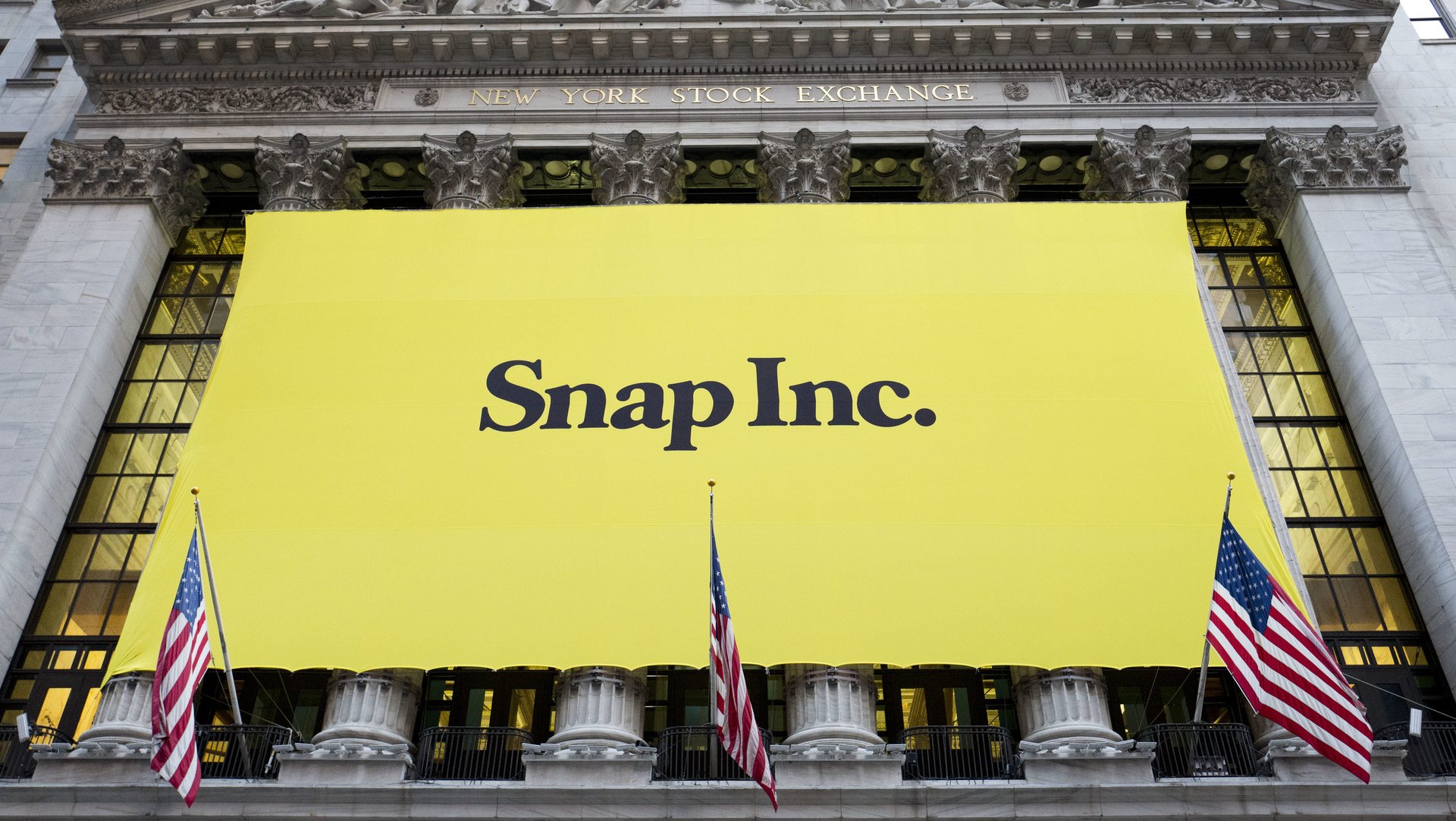Wall Street is getting its revenge on Snap
Snapchat, the disappearing messaging app, was launched with the idea of bringing something edgy and different to online communications. Its parent company, Snap, tried to do the same when it went public in March, debuting with a stock structure that gave no voting power to its newest shareholders.


Snapchat, the disappearing messaging app, was launched with the idea of bringing something edgy and different to online communications. Its parent company, Snap, tried to do the same when it went public in March, debuting with a stock structure that gave no voting power to its newest shareholders.
While Facebook and Google have multiple classes of shares which greatly dilute voting power, Snap’s innovation was to eliminate the vote altogether.
Now, the institutional shareholders that dominate Wall Street are pushing back. Starting today, companies with multiple share classes will be excluded from the S&P 500, a widely used stock index of the biggest US companies, as well as a handful of other indices, the company behind the indices has announced. It follows a similar move from the UK’s FTSE Russell indices last week.
While existing multiple-share companies already in the indices, such as mainstay Berkshire Hathaway, will be grandfathered in, companies not yet in the index will be locked out. That includes Snap and fellow tech debutante, Blue Apron.
Dow Jones S&P, which compiles the index and licenses it to investing firms, said it listened to a “wide range of market participants,” in coming to its decision, but it’s clear that a major voice was the mutual-fund industry that pours$2.2 trillion into funds that track the S&P 500. Those funds managers are increasingly willing to use their power as large shareholders to shape the policies of companies through proxy votes, and want to ensure they continue to have a voice.
Larry Fink, the CEO of investment giant BlackRock, has been particularly vocal about using his firm’s $5.1 trillion clout to improve corporate governance practices, while State Street Global Advisors, the firm behind the Fearless Girl statue, voted against the re-election of board members of approximately 400 companies that don’t have female directors.
Snap’s exclusion from the S&P 500 comes at a particularly inconvenient time. We’re in the midst of a huge swing from actively managed funds—where stocks are handpicked by analysts—to passive funds, where investments are dictated by the make up of index funds. In 2016, passive funds added $505 billion, while $340 billion flowed out of active funds, according to Morningstar (pdf). For a company looking to attract investors, being shut out of the biggest index is less than ideal.
Snap has more immediate problems that its aspirations to join the club of the biggest US corporations — its shares are trading below its IPO price (paywall) as it struggles to add users amid fierce competition from Facebook’s Instagram—but the ruling has implications for any company looking to model their corporate governance. Now, the advantages of limiting share-holders votes—fending off activist investors, protecting the founders’ long-term vision— may not outweigh its costs.